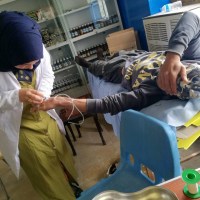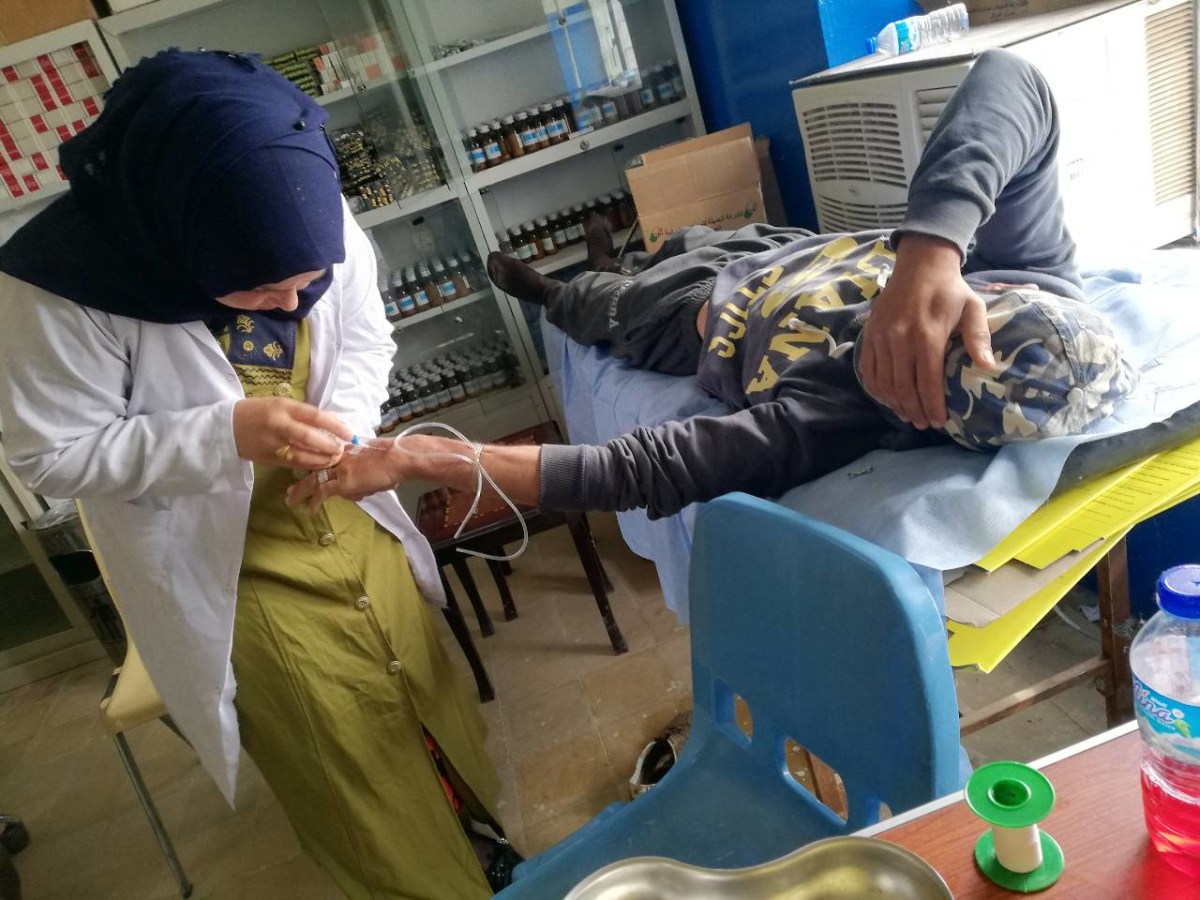Access to medical care in Iraq is difficult to bring up, when millions of American families struggle with access to health care themselves.
Seeing a doctor for minor illnesses is out of reach for many, and accessing treatment for major trauma or disease? Devastating.
Many of us are connected to someone who’s had to use a crowdsourcing platform to raise money for medical treatment. Social media is building a bridge between those who need care and those who can help cover the cost.
Modern healthcare is expensive—sometimes prohibitively so.
In Iraq, access to healthcare can be scarce for a much more basic reason: war and sanctions.
In the 1970s, families across the Middle East flocked to Iraq for top-notch care, but after decades of US-led sanctions (some of which weren’t lifted until 2010), invasion and occupation, and now the war with ISIS, Iraq’s proud healthcare system is in shambles.
In vast swaths of land previously held by ISIS, there are no remaining clinics. And because of the massive amount of infrastructure damaged by war, it will take decades for the government to rebuild.
Iraqis already devastated by war can’t wait years for access to basic health care.
Over the last two years, you created a bridge between Iraqis in need and a bombed-out medical system. You stepped in to renovate health care centers, purchase equipment and supplies, and pay salaries until the government can step in and take over.
You are providing doctors and nurses, pharmacists and pharmacy assistants, managers and ambulance drivers, cleaners and guards, lab supplies and medication (and more) at 14 health centers in territory destroyed by ISIS!
Your commitment, added to the energy and enthusiasm of young Iraqi health professionals, is making a life-changing difference for thousands of families.
We asked some of the staff to share two things: what they love most about their work and what they find most challenging.
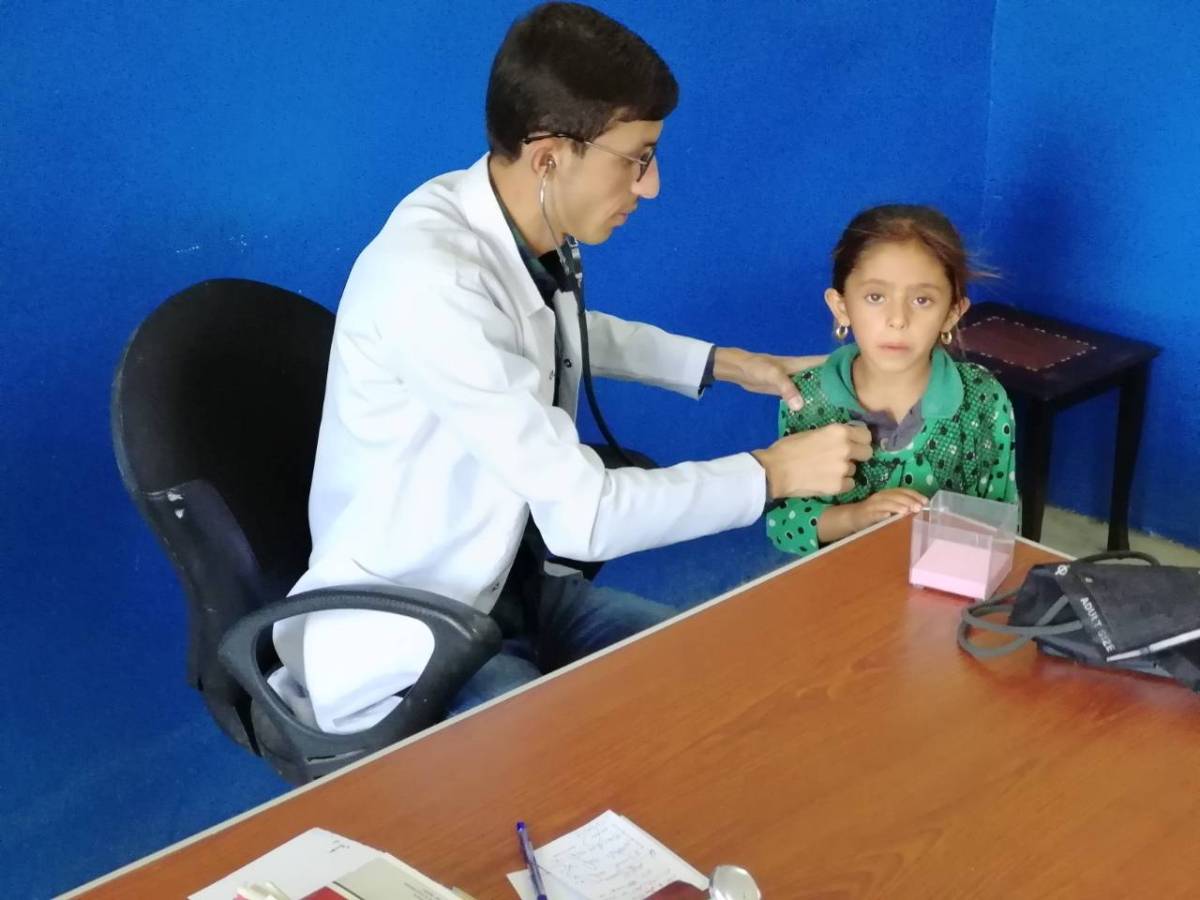
Dr. Mohammad
“Thanks for supporting our team with facilities to provide healthcare to very poor people in this village. I enjoy being a medical doctor because it’s fun to help patients get better, and I hope to make the people’s quality of life better.
“There are no significant challenges, and I’m very lucky to work with this group.”
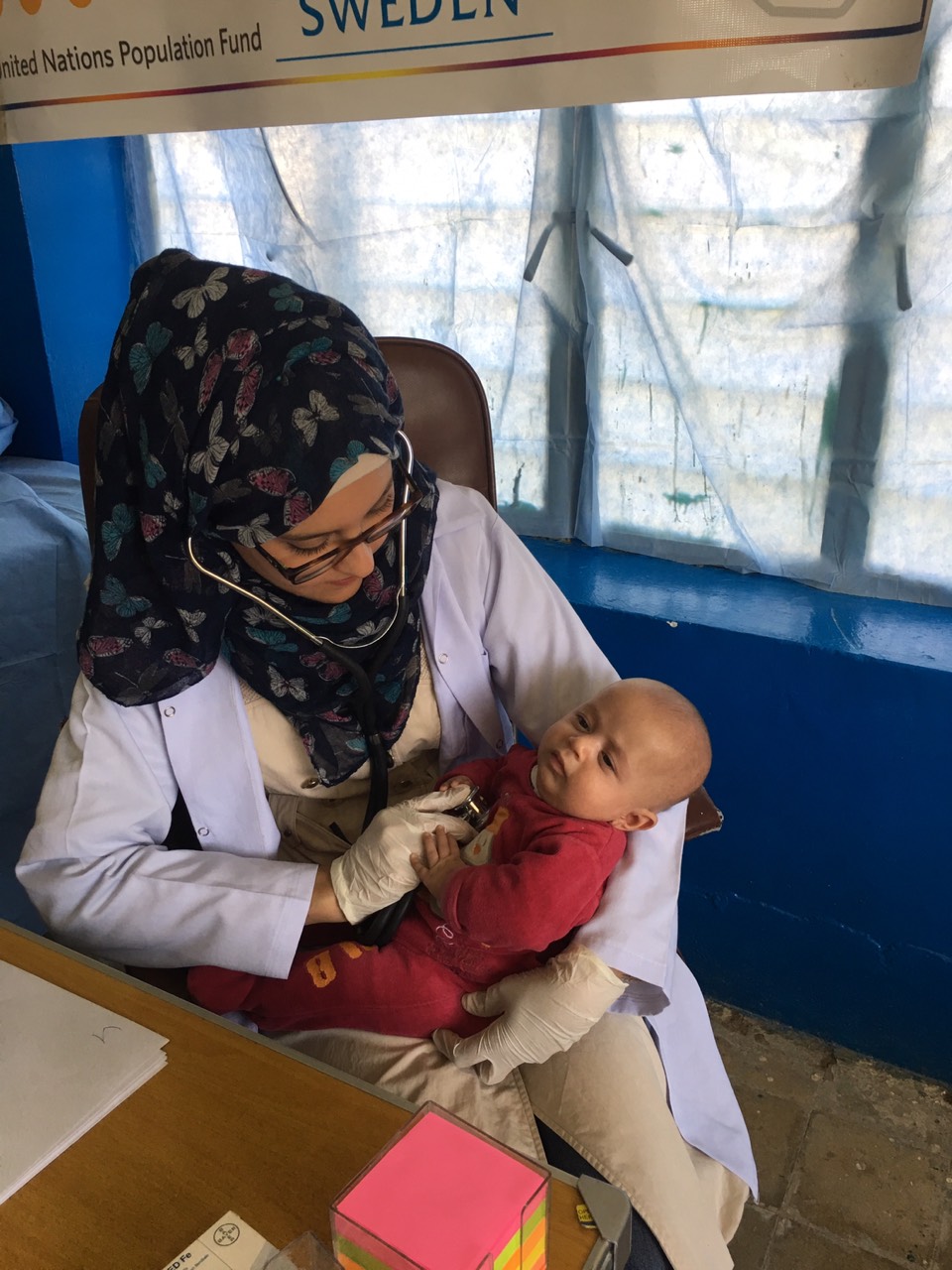
Dr. Almaha
“For me as a [reproductive health] doctor, I feel great when I see the baby in the bosom of his mother after months of followup visits. I also feel awesome when the parents ask me to name the baby, in recognition of my maternal and fetal care during pregnancy.
“The most challenging part for me, is that the people in the area where I work have little education. This means I need to explain and repeat my words again and again.”
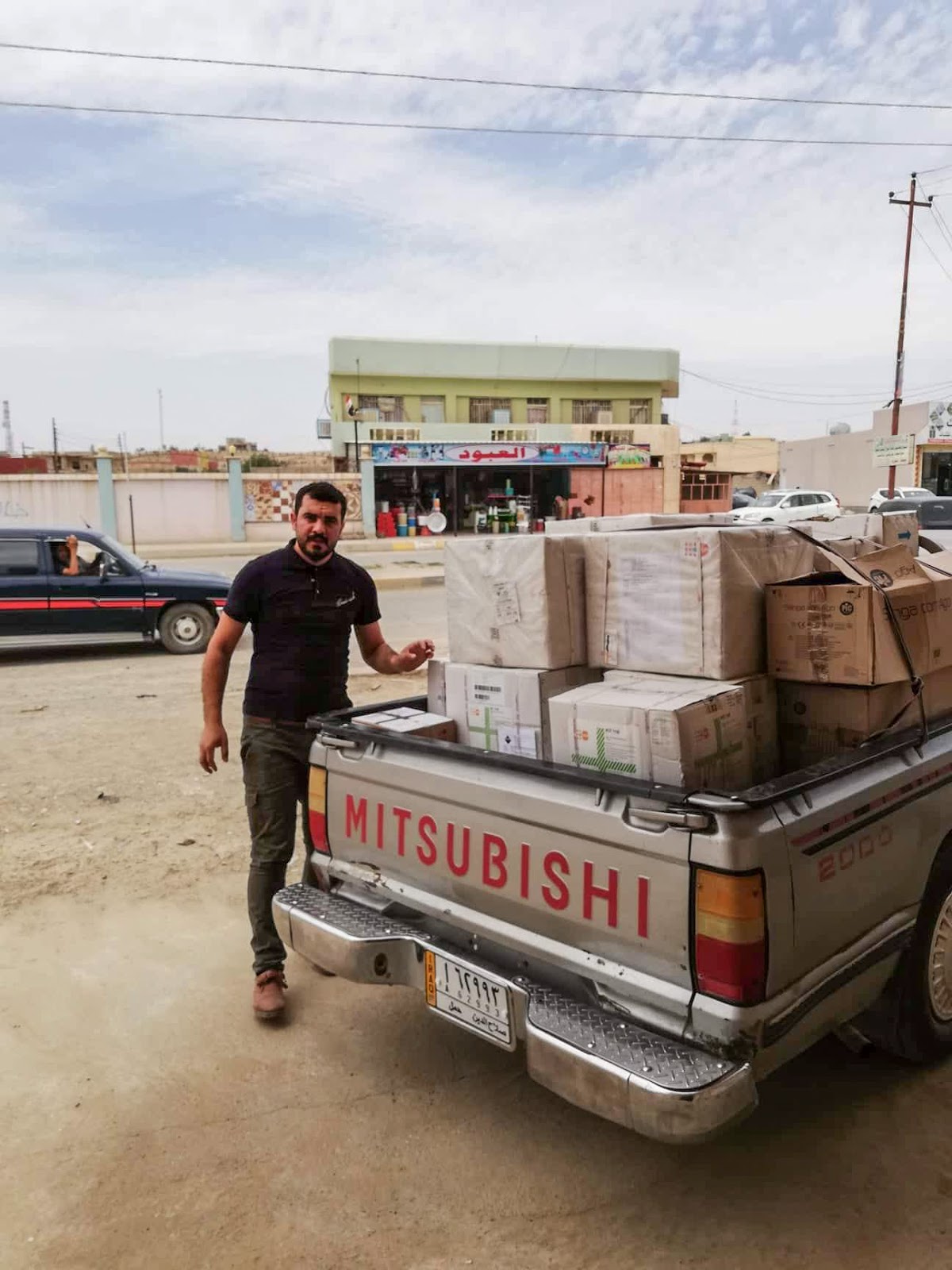
Nabeel, manager
“The work I enjoy best is to deliver the necessary medicines and supplies to our health centers in the region, to provide the best possible medical services.
“The most challenging part is to transport the supplies and deliver them on time to those centers. But fatigue fades as soon as we see patients with the assistance they need to help get them through their illnesses, and to save them.”
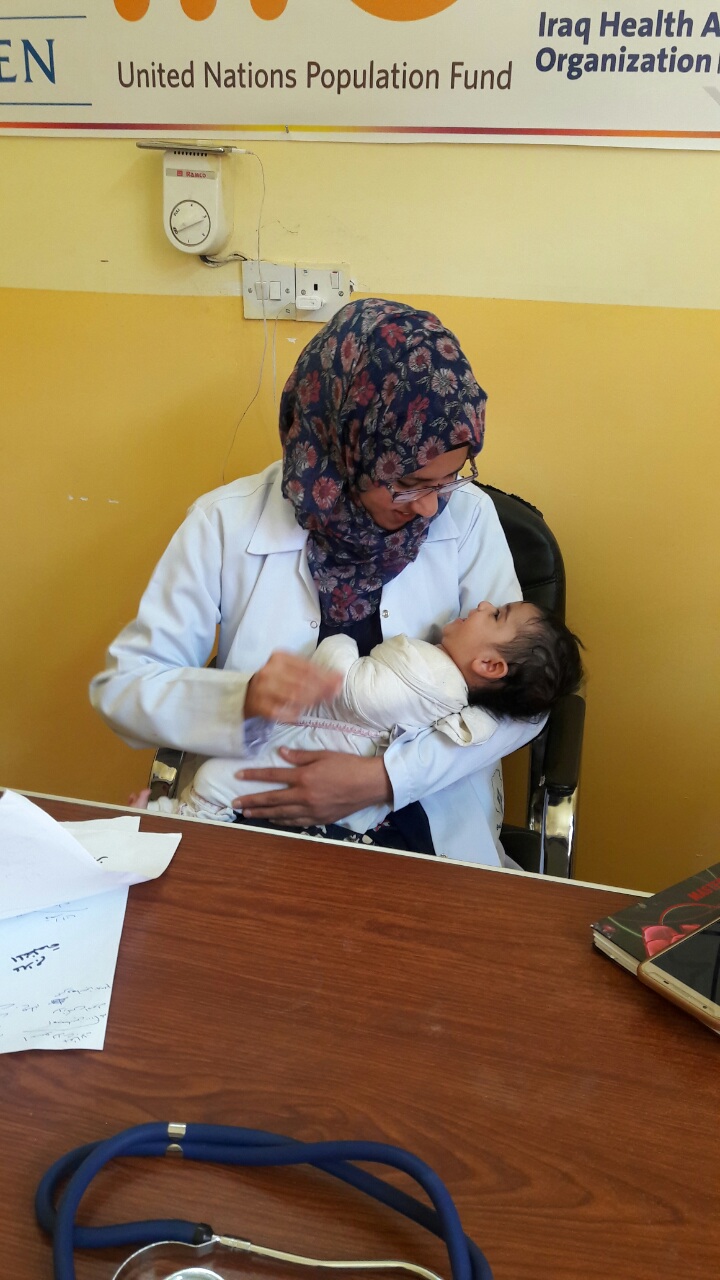
 Dr. Ilhaam
Dr. Ilhaam
“The thing I enjoy most when I take my place at the health center, is seeing a lot of patients who come to me for treatment, and after a while they bring their relatives and neighbors to me to treat them. They increase my self confidence and encourage me to [continuously] improve my knowledge through reading and frequent training. They need us now, because wars and poverty negatively affect our society—so we must provide as much healthcare as possible.
“The most challenging part, to me, was at the beginning of my work here. When we first traveled to the health center, the trip was made of three steps: first by car, then by boats or a ferry, and then another car that would take us to the health center. The security situation at that time was confusing. Sometimes military confrontations occurred, but we still went and helped the people. Allah helped us and protected us to continue our humanitarian work.”
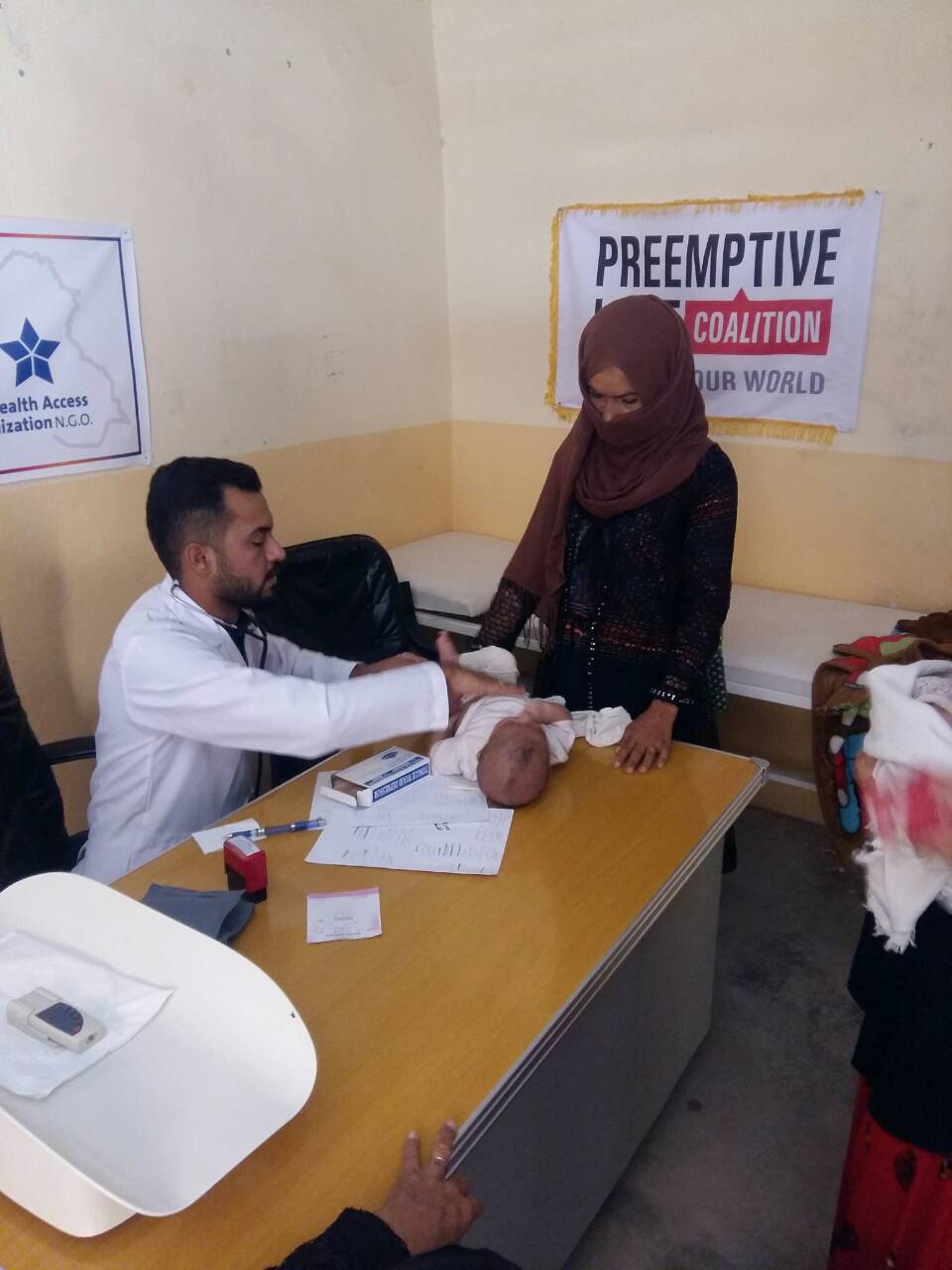
 Dr. Abdulquadr
Dr. Abdulquadr
“[The people we serve] thank us and you every day for the health service we provide them. We see decreases levels of infectious diseases and improved health day by day.
“I hope that all the people in these areas will see improvement in the prevention of diseases, as they suffer from extreme poverty and are enabled to treat themselves!
“In terms of the obstacles in work, the problem is the instability of the security situation. There are still pockets in the agricultural areas surrounding the village near the river, and in the areas of disputed territory, despite constant military operations.
“[ISIS] attacks continue, and some of their mortars fall in the surrounding areas. Home is still safe—thank God, but we are afraid of the [military’s] departure from the area at every moment, as attacks usually take place at night!”
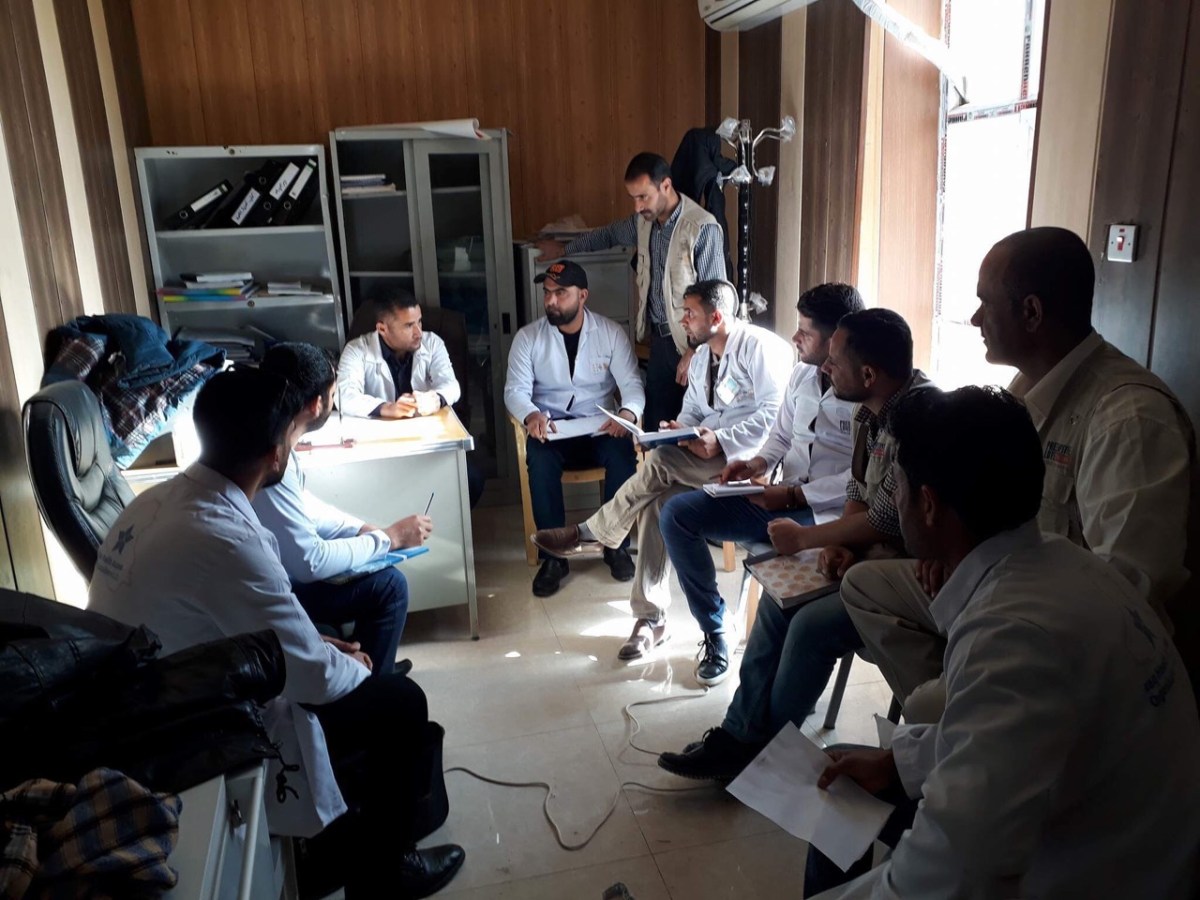
Lastly, I wanted to share with you a meeting of the healthcare team at one of the clinics. They meet two to three times each week to discuss new challenges that come up at the clinic.
They don’t only come with problems to share; they come together to create solutions.
Dr. Ahmed explained “Don’t think that everyone works [strictly] according to his position. No!! When something happens, or a difficult case arrives, they work together on the need.”
These medical clinics provide essential medical services to Iraqis in need, absolutely. But they are also incubators for a different kind of healthcare. You are empowering young Iraqi health professionals to pair their growing knowledge and skills with their energy and passion, and the effects will be felt for decades to come!

